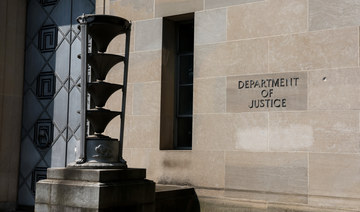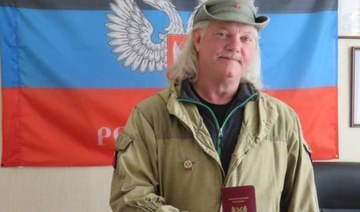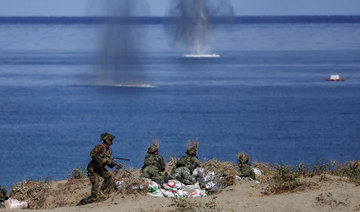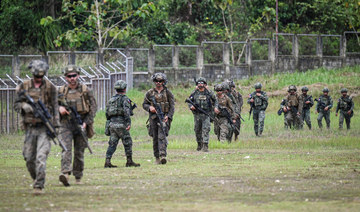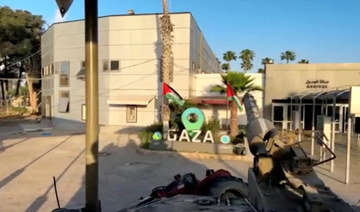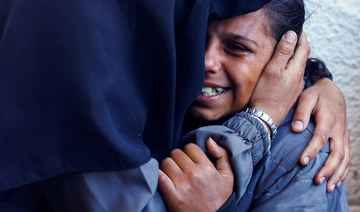WASHINGTON: Top Democrats pressed for Attorney General Jeff Sessions to resign on Thursday after a newspaper reported he had not disclosed two meetings with the Russian ambassador before President Donald Trump took office.
Sessions, a top adviser to Trump during the presidential campaign, received Russian Ambassador Sergei Kislyak in his office in September, the Washington Post reported. That was at the height of what US intelligence officials say was a Russian hacking campaign to influence the November election in the Republican candidate’s favor.
The other encounter was in July at a Heritage Foundation event that was attended by about 50 ambassadors, during the Republican National Convention, the Post said. A Justice Department official confirmed Sessions’ contacts in July and September.
Allegations over contacts between Trump aides and Russia before his inauguration, and the charge of Russian meddling, have swirled around the early days of Trump’s presidency. Trump has accused former officials in the administration of former President Barack Obama of trying to discredit him.
“The Department of Justice should be above reproach,” Senate Minority Leader Charles Schumer said. “For the good of the country, Attorney General Sessions should resign.”
Nancy Pelosi, the top Democrat in the House of Representatives, called for Sessions to resign and for an independent, bipartisan investigation into Trump’s possible ties to Russians.
“Sessions is not fit to serve as the top law enforcement officer of our country and must resign,” she said in a statement late on Wednesday.
US Representative Elijah Cummings criticized Sessions for keeping his contact with the ambassador secret even after Trump fired his first national security adviser, Michael Flynn. Sessions “should resign immediately,” he said.
Flynn was dismissed last month after it emerged that he had discussed US sanctions on Russia with Kislyak before Trump’s swearing-in on Jan. 20, and then misled Vice President Mike Pence about the conversations.
At his Jan. 10 confirmation hearing in the US Senate, Sessions said he had had no contact with Russian officials about the 2016 election. In a statement late on Wednesday, Sessions said he had never discussed campaign details with any Russian officials.
“I have no idea what this allegation is about. It is false,” Sessions said.
The Russian Embassy to the US, shrugging off the uproar, said on Thursday it was in regular contact with “US partners.”
The revelation of Sessions’ contacts fueled new congressional calls for the appointment of a special counsel to investigate Russia’s role in the 2016 presidential election.
Before Trump took office, US intelligence agencies concluded that Russia had sought to influence the campaign, including by hacking into and leaking Democratic e-mails. The Kremlin has denied the allegations.
As attorney general, Sessions oversees the Justice Department, including the FBI, which has been leading investigations into the allegations of the Russian meddling and any links to Trump’s associates.
Sessions, a former senator, has so far resisted calls to recuse himself from those investigations. On Thursday morning, he told NBC News, “Whenever it is appropriate I will recuse myself, there is no doubt about that.”
Sessions’ failure to disclose the contacts worried even some of his fellow Republicans.
Republican, Representative Jason Chaffetz, chairman of the House Oversight Committee, said on Twitter “AG Sessions should clarify his testimony and recuse himself.”
During Sessions’ confirmation hearing, Democratic Senator Al Franken asked him what he would do if he learned of any evidence that anyone affiliated with the Trump campaign communicated with the Russian government in the course of the 2016 campaign.
Sessions said he was not aware of any such activities, adding, “I have been called a surrogate at a time or two in that campaign and I did not have communications with the Russians.”
Asked by Democrat Patrick Leahy in a questionnaire whether he had been in contact with “anyone connected to any part of the Russian government about the 2016 election, either before or after election day,” Sessions responded, “No.”
Republican Lindsey Graham, a leading foreign policy voice in the Senate, said on CNN on Wednesday night if the FBI finds anything criminal in nature in its Russia-related investigations, a special prosecutor would be required.
“If that day ever comes, I will be the first one to say it needs to be somebody other than Jeff,” Graham said.
Democrats seek Sessions resignation after report of Russia contact
Democrats seek Sessions resignation after report of Russia contact
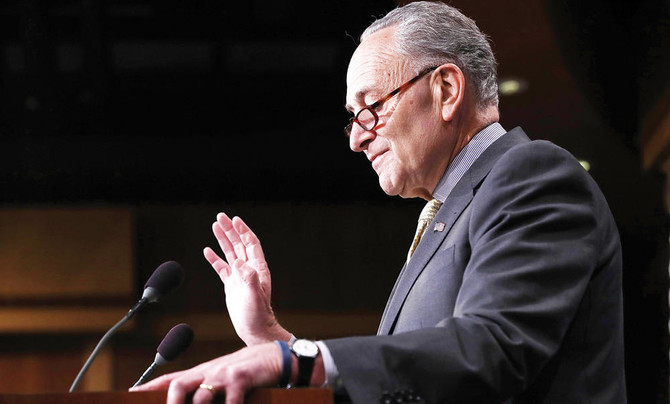
UN: Myanmar displaced now at 3 million
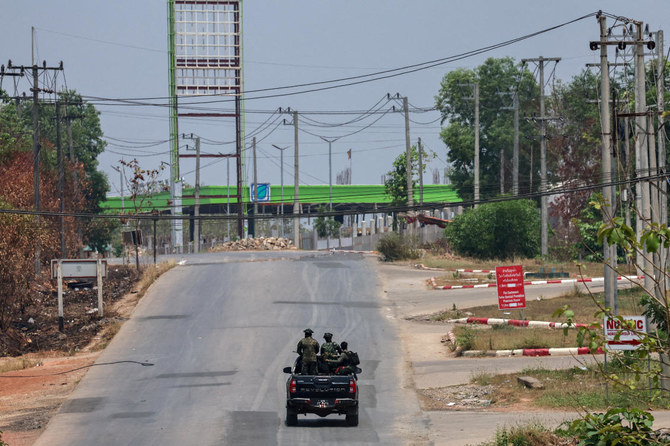
- An estimated one-third of those displaced are children, according to the UN statement
Around 2.7 million have fled since the putsch that toppled Aung San Suu Kyi’s government after a short-lived experiment with democracy.
The coup sparked renewed clashes with established ethnic armed groups and birthed dozens of new “People’s Defense Forces” that the military has failed to crush.
“Myanmar stands at the precipice in 2024 with a deepening humanitarian crisis,” the UN’s resident coordinator in the country said in a statement released on Monday.
An estimated one-third of those displaced are children, according to the statement.
Around half of the three million have been displaced since late last year, when an alliance of ethnic armed groups launched an offensive across northern Shan state, the statement said.
The offensive seized swathes of territory and lucrative trade crossings on the China border, posing the biggest threat to the junta since it seized power.
Myanmar’s borderlands are home to a plethora of ethnic armed groups, many of whom have battled the military since independence from Britain in 1948 over autonomy and control of lucrative resources.
The UN said a severe funding shortfall was hampering its relief efforts, particularly ahead of the May-June cyclone season.
Last year cyclone Mocha smashed into western Myanmar’s Rakhine state, killing at least 148 people.
More than 355,000 people are currently displaced in western Rakhine state, which has been rocked since November by clashes between the Arakan Army and the military, the UN said.
Russian court says US soldier charged with theft causing ‘significant’ damage

- Detention of Gordon Black presents yet another diplomatic headache for the US
- The US soldier was detained in early May in Vladivostok, in Russia’s Far East
MOSCOW: US soldier Gordon Black, who has been detained the Russian city of Vladivostok until July 2, has been charged with theft causing significant damage, a Russian court said.
The detention of Black, who the Pentagon said traveled to Russia without authorization, presents yet another diplomatic headache for the United States, which has warned US citizens against all travel to Russia.
He was detained in early May in Vladivostok, in Russia’s Far East.
The Pervomaisky District Court of Vladivostok said in a statement that it had decided on the preventive measure to detain Black until July 2 for “secretly stealing the property of citizen T., causing the latter significant damage.”
“When choosing the preventive measure in the form of detention, the court came to the conclusion that US citizen B. (Black) — under the weight of the charges — could hide from the preliminary investigation authorities and the court to avoid responsibility,” the court said in the statement.
Earlier, the court’s press service identified the soldier as Gordon Black.
The Russian interior ministry in Vladivostok said on Tuesday that a 32-year-old woman had filed a complaint against the 34-year-old suspect.
The two had met in South Korea. The American had come to Vladivostok to visit her, the two had an argument, and she later filed a police report accusing him of stealing money, it said. He was arrested in a local hotel, having bought a plane ticket to return home.
The Pentagon said on Tuesday that before his arrest in Russia, Black not only broke Army rules by traveling to the Russian city of Vladivostok without authorization, but he did so after passing through China.
US, Philippine and Australian forces sink a ship during war drills in the disputed South China Sea
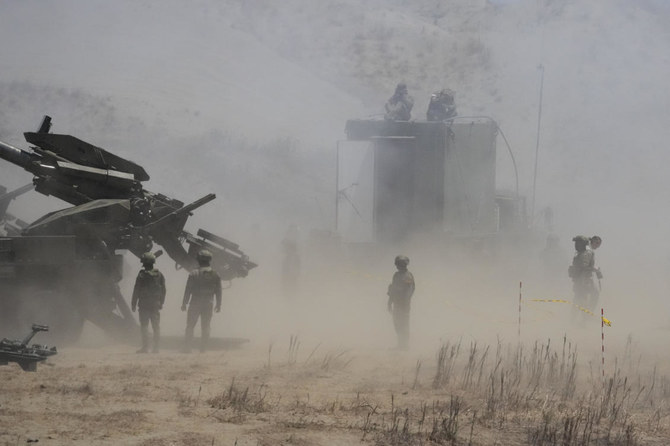
- Philippine President Ferdinand Marcos Jr.has ordered his military to shift its focus to external defense from decades-long domestic anti-insurgency operations
LAOAG, Philippines: Military force from the United States, Australian and the Philippines launched a barrage of high-precision rockets, artillery fire and airstrikes to sink a ship Wednesday as part of largescale war drills in waters facing the disputed South China Sea that have antagonized Beijing.
Military officials and diplomats from several countries, along with journalists, watched the display of firepower from a hilltop along a sandy coast in Laoag City on Wednesday in Ilocos Norte, Philippine President Ferdinand Marcos Jr.’s northern home province.
More than 16,000 military personnel from the United States and the Philippines, backed by a few hundred Australian troops and military observers from 14 countries were participating in annual combat-readiness drills called Balikatan, Tagalog for shoulder-to-shoulder, which started on April 22 and will end on Friday.
It’s the latest indication of how the United States and the Philippines have bolstered a defense treaty alliance that started in the 1950s.
Marcos has ordered his military to shift its focus to external defense from decades-long domestic anti-insurgency operations as China’s increasingly aggressive actions in the South China Sea become a top concern. That strategic shift dovetails with the efforts of President Joe Biden and his administration to reinforce an arc of alliances in the Indo-Pacific region to counter China.
China has angered the Philippines by repeatedly harassing its navy and coast guard ships with the use of powerful water cannons, a military-grade laser, blocking movements and other dangerous maneuvers in the high seas near two disputed South China Sea shoals that have led to minor collisions. Those have caused several injuries to Filipino navy personnel and damaged supply boats.
“We’re under the gun,” Philippine ambassador to Washington Jose Romualdez told The Associated Press in a telephone interview.
“We don’t have the wherewithal to be able to fight all of this bullying coming from China so where else will we go?” Romualdez asked. “We went to the right party which is the United States and those that believe in what the US is doing.”
China has accused the Philippines of setting off the hostilities in the disputed waters by encroaching into what it says are its offshore territories, demarcated by 10 dashes on a map. This has often prompted the Chinese coast guard and navy to take steps to expel Philippine coast guard and other vessels from that area. The Philippines, backed by the US and its allies and security partners, has repeatedly cited a 2016 international arbitration ruling based on the United Nations Convention of the Law of the Sea that invalidated China’s claim over virtually the entire South China Sea on historical grounds.
China did not participate in the arbitration complaint filed by the Philippines in 2013, rejected the ruling, and continues to defy it.
After an hour of the combat-readiness drills, black smoke started to billow from the stern of the mock enemy ship that was struck by missile fire and it started to sink ,as shown on a monitor watched by foreign military guests and journalists. US and Philippine warplanes later dropped bombs on the BRP Lake Caliraya, the target ship, which was made in China but decommissioned by the Philippine navy in 2020 due to mechanical and electrical issues, according to Philippine military officials.
Philippine military officials said the maneuvers would bolster the country’s coastal defense and disaster-response capabilities and claimed they were not aimed at any country. China has opposed military drills involving US forces in the region as well as increasing US military deployments, which it warned would ratchet up tensions and hamper regional stability and peace.
Washington and Beijing have been on a collision course over China’s increasingly assertive actions to defend its vast territorial claims in the South China Sea, and Beijing’s stated goal of annexing Taiwan, by force if necessary.
In February last year, Marcos approved a wider US military presence in the Philippines by allowing rotating groups of American military forces to stay in four more Philippine military camps. That was a sharp turnaround from his predecessor Rodrigo Duterte, who feared that a larger American military footprint could antagonize Beijing.
China strongly opposed the move, which would allow US forces to establish staging grounds and surveillance posts in the northern Philippines across the sea from Taiwan, and in western Philippine provinces facing the South China Sea.
China has warned that a deepening security alliance between Washington and Manila and their ongoing military drills should not harm its security and territorial interests or interfere in the territorial disputes. The Philippines countered that it has the right to defend its sovereignty and territorial interests.
“An alliance is very important to show China that you may have all the ships that you have, but we have a lot of firepower to sink all of them,” Romualdez said.
US paused bomb shipment to Israel to signal concerns over Rafah invasion, official says
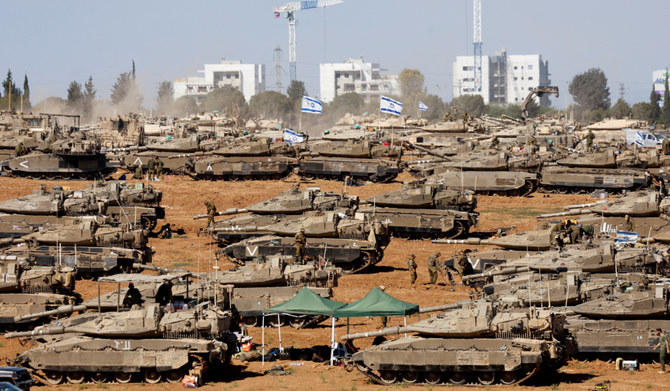
- Israel has killed more than 34,700 Palestinians in Gaza, mostly women and children, according to the health ministry in the Hamas-run territory
- The State Department is separately considering whether to approve the continued transfer of Joint Direct Attack Munition kits, which place precision guidance systems onto bombs, to Israel, but the review didn’t pertain to imminent shipments
WASHINGTON: The US paused a shipment of bombs to Israel last week over concerns that Israel was approaching a decision on launching a full-scale assault on the southern Gaza city of Rafah against the wishes of the US, a senior administration official said Tuesday.
The shipment was supposed to consist of 1,800 2,000-pound bombs and 1,700 500-pound bombs, according to the official, who spoke on the condition of anonymity to discuss the sensitive matter, with the focus of US concern being the larger explosives and how they could be used in a dense urban setting. More than 1 million civilians are sheltering in Rafah after evacuating other parts of Gaza amid Israel’s war on Hamas, which came after the militant group’s deadly attack on Israel on Oct. 7.
President Joe Biden’s administration in April began reviewing future transfers of military assistance to Israel as Prime Minister Benjamin Netanyahu’s government appeared to move closer toward an invasion of Rafah, despite months of opposition from the White House. The official said the decision to pause the shipment was made last week and no final decision had been made yet on whether to proceed with the shipment at a later date.
The State Department is separately considering whether to approve the continued transfer of Joint Direct Attack Munition kits, which place precision guidance systems onto bombs, to Israel, but the review didn’t pertain to imminent shipments.
Some colleges that had been permissive of pro-Palestinian protests begin taking a tougher stance
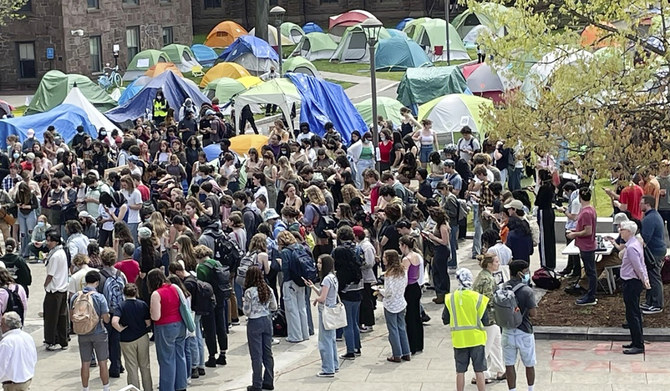
- Tensions have continued to ratchet up in standoffs with protesters on campuses across the US — and increasingly, in Europe — nearly three weeks into a movement launched by a protest at Columbia University
- Israel has killed more than 34,700 Palestinians in Gaza, mostly women and children, according to the health ministry in the Hamas-run territory
CHICAGO: Police cleared a pro-Palestinian tent encampment at the University of Chicago on Tuesday after administrators who had initially adopted a permissive approach said the protest had crossed a line and caused growing concerns about safety.
University President Paul Alivizatos acknowledged the school’s role as a protector of freedom of speech after officers in riot gear blocked access to the school’s Quad but also took an enough-is-enough stance.
“The university remains a place where dissenting voices have many avenues to express themselves, but we cannot enable an environment where the expression of some dominates and disrupts the healthy functioning of the community for the rest,” Alivizatos wrote in a message to the university community.
Tensions have continued to ratchet up in standoffs with protesters on campuses across the US — and increasingly, in Europe — nearly three weeks into a movement launched by a protest at Columbia University. Some colleges cracked down immediately on protests against the Israel-Hamas war. Among those that have tolerated the tent encampments, some have begun to lose patience and call in police over concerns about disruptions to campus life, safety and the involvement of nonstudents.
Since April 18, just over 2,600 people have been arrested on 50 campuses, figures based on AP reporting and statements from universities and law enforcement agencies.
But not all schools are taking that approach, with some letting protesters hold rallies and organize their encampments as they see fit.
The president of Wesleyan University, a liberal arts school in Connecticut, has commended the on-campus demonstration — which includes a pro-Palestinian tent encampment — as an act of political expression. The camp there has grown from about 20 tents a week ago to more than 100.
“The protesters’ cause is important — bringing attention to the killing of innocent people,” university President Michael Roth wrote to the campus community Thursday. “And we continue to make space for them to do so, as long as that space is not disruptive to campus operations.”
The Rhode Island School of Design, where students started occupying a building Monday, affirms students’ rights to freedom of speech and peaceful assembly and supports all members of the community, a spokesperson said. The school said President Crystal Williams spent more than five hours with the protesters that evening discussing their demands.
On Tuesday the school announced it was relocating classes that were scheduled to take place in the building. It was covered with posters reading “Free Palestine” and “Let Gaza Live,” and dove was drawn in colored chalk on the sidewalk.
Campuses have tried tactics from appeasement to threats of disciplinary action to resolve the protests and clear the way for commencements.
At the University of Chicago, hundreds of protesters gathered for at least eight days until administrators warned them Friday to leave or face removal. On Tuesday, law enforcement dismantled the encampment.
Officers later picked up a barricade erected to keep protesters out of the Quad and moved it toward the demonstrators, some of whom chanted, “Up, up with liberation. Down, down with occupation!” Police and protesters pushed back and forth along the barricade as the officers moved to reestablish control.
Officials at the University of North Carolina, Chapel Hill, told deans and department chairs Monday that some students have been informed by instructors opposing the suspension of student protesters that they will withhold grades.
The school provost’s office said it will support “sanctions for any instructor who is found to have improperly withheld grades.”
At the Massachusetts Institute of Technology, protesters were given a deadline to voluntarily leave or face suspension. Many left, according to an MIT spokesperson, who said protesters breached fencing after the arrival of demonstrators from outside the university. On Monday night, dozens remained at the encampment in a calmer atmosphere.
MIT officials said the following day that dozens of interim suspensions and discipline committee referrals were in process, actions taken to ensure the “safety of our community.”
Sam Ihns, a graduate student studying mechanical engineering and a member of MIT Jews for a Ceasefire, said the group has been there for two weeks and is calling for an end to the killing in Gaza.
“Specifically, our encampment is protesting MIT’s direct research ties to the Israeli Ministry of Defense,” he said.
Many protesters want schools to divest from companies that do business with Israel or otherwise contribute to the war effort. Others simply want to call attention to the deaths in Gaza and for the war to end.
Wesleyan senior Uday Narayanan said students there are prepared to protest through the summer if that’s what it takes for their demands to be met.
“Our tuition dollars are still going toward the brutalization of Palestinians,” the 21-year-old physics major said. “So, ultimately, even though our president has said, ‘Oh, I’m not going to call the cops. Oh, I’m not going to beat up students,’ that’s still not enough, and that’s not the bare minimum for us.”
And as Wesleyan’s May 26 commencement approaches, some protesters fear they will be forcibly removed from the center of campus, adjacent to the field where the ceremony is to take place.
“The longer we are here, the more that their facade of laid back, hands off is falling away,” said Batya Kline, a 22-year-old graduate student. “We know that the university does not want us here, and we know that they can change their pace at the drop of a hat without letting us know.”
Frank Straub, senior director of violence prevention at nonprofit advocacy organization Safe and Sound Schools, said these and past protests have shown the need for early dialogue among the university, police and protesters to establish ground rules.
Straub said Wesleyan, for example, needs to have conversations about commencement and where protesters can be, and should make sure a plan is in place to respond, should protesters want to get arrested, so that can be done without violence.
“By their nature, protests are adversarial, but I think we can have controlled adversity,” he added. “And I think the more campus officials are engaged with the protesters and the more police are included in those conversations, that’s critically important.”
The protests stem from the conflict that started Oct. 7 when Hamas militants attacked southern Israel, killing about 1,200 people, mostly civilians, and taking roughly 250 hostages.
Vowing to destroy Hamas, Israel launched an offensive in Gaza that has killed more than 34,500 Palestinians, about two-thirds of them women and children, according to the Health Ministry in the Hamas-ruled territory. Israeli strikes have devastated the enclave and displaced most of its inhabitants.


